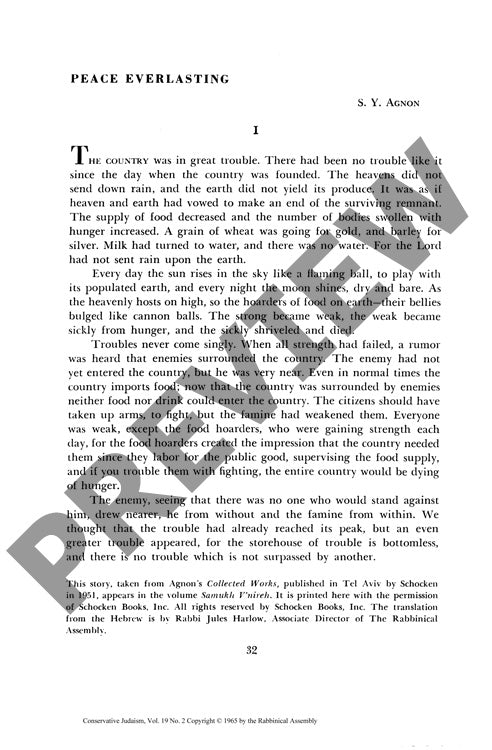Peace Everlasting
Couldn't load pickup availability
When political and religious leaders unite against divine intervention, their resistance reveals deeper institutional dysfunction. In S.Y. Agnon's allegorical "Peace Everlasting" (1951), a country gripped by famine and external threats finds itself paralyzed by the perpetual conflict between "covered-heads" and "bared-heads." Through close textual analysis of the narrative's symbolic elements, particularly the representation of sectarian strife and bureaucratic response to crisis, this research examines how Agnon crafts a biting satire of institutional self-preservation. The story's pivotal moment occurs when an outsider's simple prayer for rain triggers unified opposition from political leaders, who respond by constructing "Protesterrific," an enormous carpet designed to block heaven's influence. This extreme reaction exposes the paradox of authorities who would rather maintain control than address genuine public suffering. The narrative's religious and political symbolism illuminates how institutional powers can become obstacles to authentic spiritual and practical solutions. As natural forces ultimately prevail despite human obstruction, Agnon demonstrates the futility of opposing divine intervention with artificial political constructs, contributing vital insights to modern Jewish political consciousness and institutional critique.

More Information
-
Physical Description
-
Publication Information
Published 1965
ISBN
-
Publication Credits
S. Agnon

